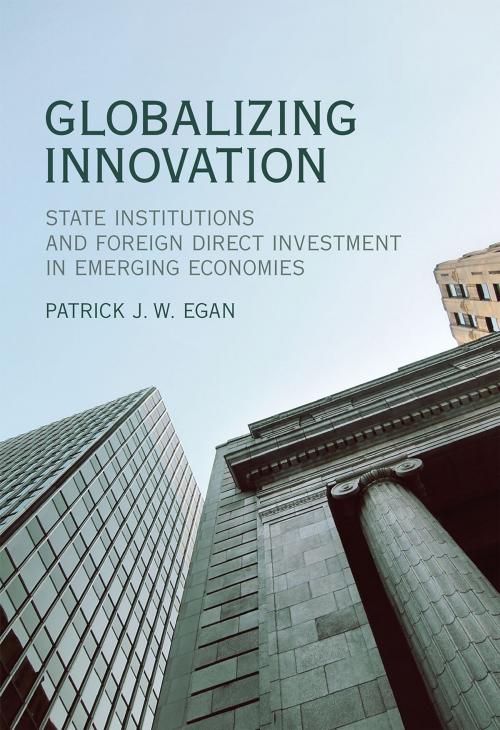Globalizing Innovation
State Institutions and Foreign Direct Investment in Emerging Economies
Business & Finance, Economics, International Economics, Nonfiction, Reference & Language, Reference, Social & Cultural Studies, Political Science| Author: | Patrick J.W. Egan | ISBN: | 9780262344272 |
| Publisher: | The MIT Press | Publication: | January 5, 2018 |
| Imprint: | The MIT Press | Language: | English |
| Author: | Patrick J.W. Egan |
| ISBN: | 9780262344272 |
| Publisher: | The MIT Press |
| Publication: | January 5, 2018 |
| Imprint: | The MIT Press |
| Language: | English |
The impact of host country institutions and policy on innovation by multinational firms in emerging economies.
In the past, multinational firms have looked to developing countries as sources of raw materials, markets, or production efficiencies, but rarely as locations for innovation. Today, however, R&D facilities and other indicators of multinational-linked innovation are becoming more common in emerging economies. In this book, Patrick Egan investigates patterns of inward foreign direct investment (FDI) in developing countries, considering the impact of host country institutions and policy on the innovative activities undertaken by multinational firms. He examines the uneven spread of innovation-intensive foreign direct investment and emerging sectoral distributions, then develops a number of arguments about the determinants of multinational innovation in developing countries. Firms are attracted by a country's supply of skilled labor and are often eager to innovate close to new markets; but, Egan finds, host country institutions and the configuration of the host country's investment policies have a strong impact on firm decisions and evolving country investment profiles.
Egan uses econometric analysis to identify determinants of multinational innovation, and examines differences among state institutions as a key variable. He then offers a detailed case study, assessing Ireland's attempts to use foreign direct investment in innovation as a catalyst for development. While FDI is a potential vehicle for industrial upgrading, Egan cautions, it is neither necessary nor sufficient for development. Furthermore, innovation-intensive investments are not likely to develop linkages with local actors or otherwise embed themselves in host economies in the absence of active, discriminating policies channeled through coherent and coordinated institutions.
The impact of host country institutions and policy on innovation by multinational firms in emerging economies.
In the past, multinational firms have looked to developing countries as sources of raw materials, markets, or production efficiencies, but rarely as locations for innovation. Today, however, R&D facilities and other indicators of multinational-linked innovation are becoming more common in emerging economies. In this book, Patrick Egan investigates patterns of inward foreign direct investment (FDI) in developing countries, considering the impact of host country institutions and policy on the innovative activities undertaken by multinational firms. He examines the uneven spread of innovation-intensive foreign direct investment and emerging sectoral distributions, then develops a number of arguments about the determinants of multinational innovation in developing countries. Firms are attracted by a country's supply of skilled labor and are often eager to innovate close to new markets; but, Egan finds, host country institutions and the configuration of the host country's investment policies have a strong impact on firm decisions and evolving country investment profiles.
Egan uses econometric analysis to identify determinants of multinational innovation, and examines differences among state institutions as a key variable. He then offers a detailed case study, assessing Ireland's attempts to use foreign direct investment in innovation as a catalyst for development. While FDI is a potential vehicle for industrial upgrading, Egan cautions, it is neither necessary nor sufficient for development. Furthermore, innovation-intensive investments are not likely to develop linkages with local actors or otherwise embed themselves in host economies in the absence of active, discriminating policies channeled through coherent and coordinated institutions.















